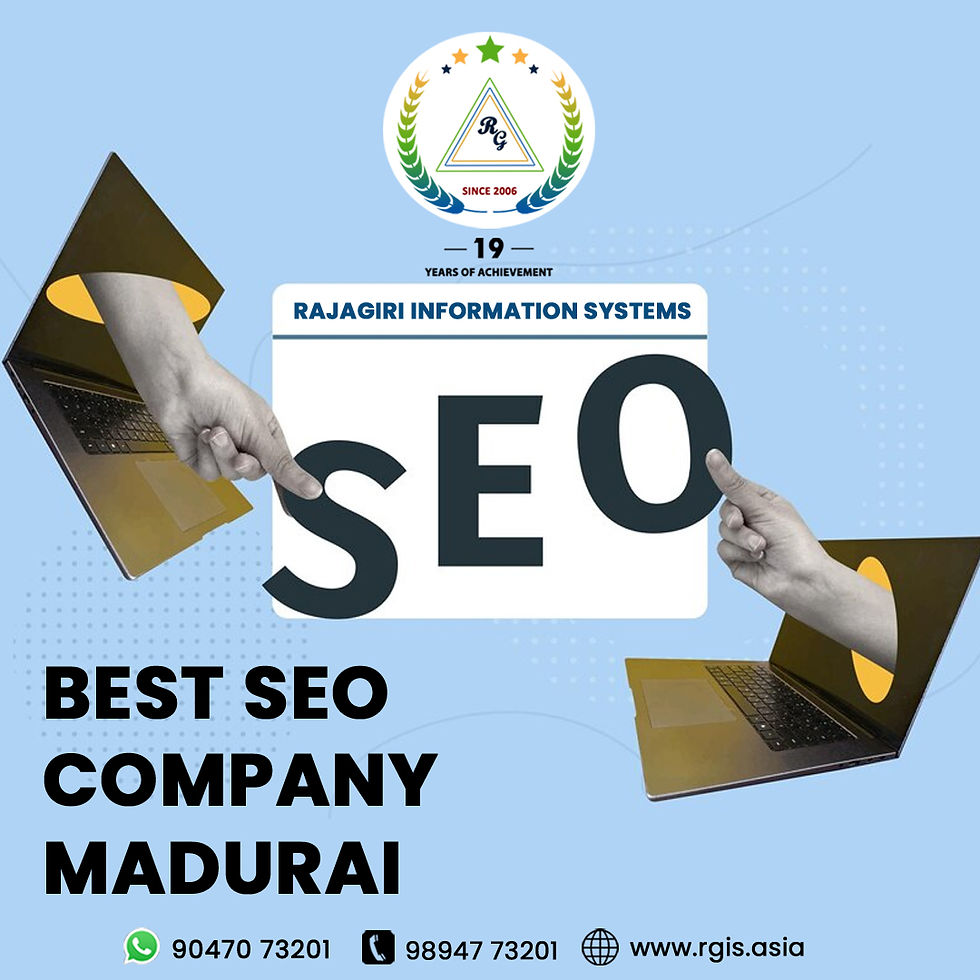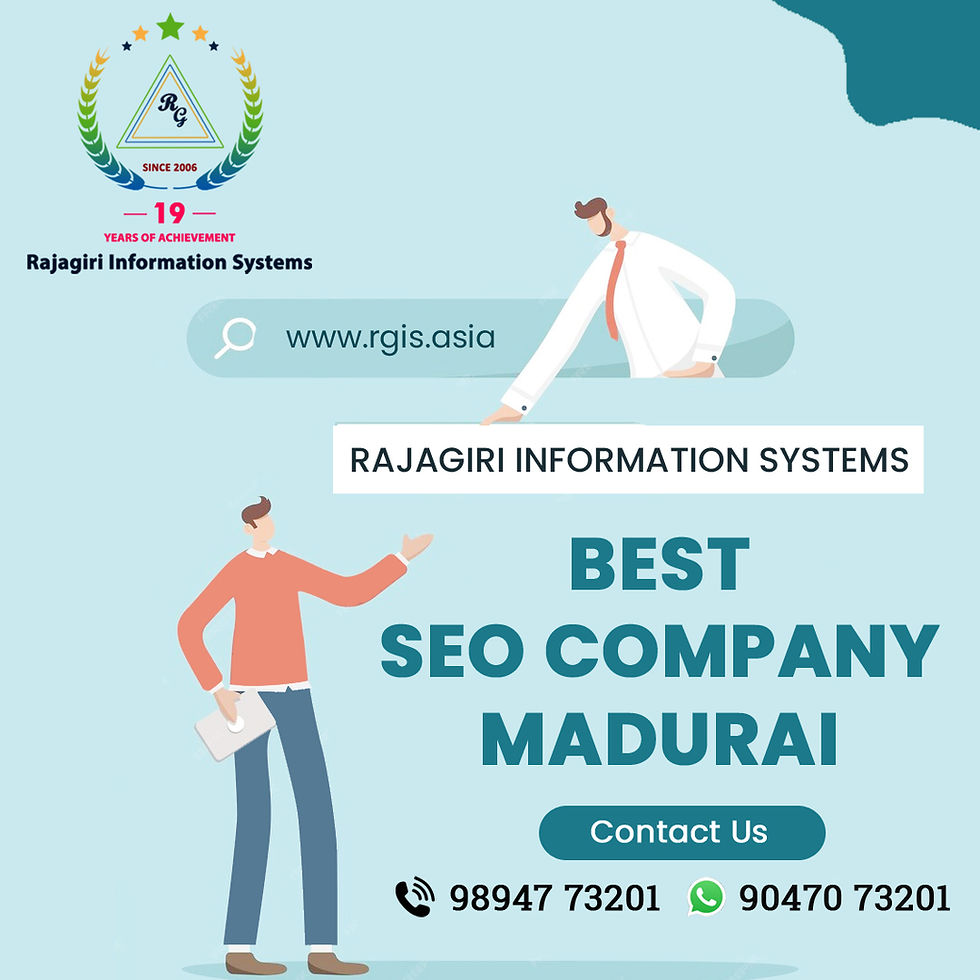Why Your Business Website Isn’t Ranking and What You Can Do About It
- rgisasia2016
- Nov 12, 2024
- 4 min read

If you’re running a business and struggling to see your website rank well on search engines like Google, you’re not alone. It can be frustrating when you’re putting in the effort, but your website is stuck on page 10 of search results. So, why isn’t your business website ranking, and more importantly, what can you do to fix it?
Let’s break down the most common reasons your website may not be ranking well, and offer some practical steps to turn things around.
1. Lack of Quality Content
One of the biggest reasons your website might not be ranking is the quality (or lack) of content. Search engines like Google rank websites higher when they provide fresh, relevant, and well-written content. If your site is thin on content or just stuffed with keywords without context, you’re not doing yourself any favors.
What you can do: Start by adding valuable content that addresses the needs of your audience. Whether it’s blog posts, articles, or landing pages, make sure your content answers questions, solves problems, and provides useful information.
2. Poor Keyword Strategy
Keywords are the backbone of SEO. If you’re not targeting the right keywords, you could be missing out on potential traffic. Using too few keywords or overly competitive ones can also hinder your chances of ranking.
What you can do: Focus on long-tail keywords (specific phrases that your target audience might be searching for). Do some research to find the best keywords for your niche and make sure to incorporate them naturally throughout your content. Tools like Google Keyword Planner and SEMrush can guide you in finding the best keywords.
3. Not Mobile-Friendly
You may be surprised to learn that mobile devices account for about half of all web traffic. If your website isn’t optimized for mobile, you’re losing a huge chunk of your audience — and Google knows it.
What you can do: Ensure that your website is mobile-responsive. This means your site should automatically adjust to fit screens of all sizes. If your site isn’t mobile-friendly, it’s time to update your design to ensure a smooth user experience on both desktop and mobile.
4. Slow Website Speed
Website speed is a critical factor in SEO. If your website takes too long to load, visitors will bounce, and search engines like Google will rank your site lower.
What you can do: Optimize your website’s speed by compressing images, reducing the number of plugins, and using a faster web hosting service. Tools like Google PageSpeed Insights can help you recognize areas that need enhancement.
5. No Backlinks
Search engines use backlinks — links from other websites leading to yours — as a key indicator of your website’s authority and dependability. Without backlinks, your site may find it hard to rank effectively.
What you can do: Start building quality backlinks by reaching out to other websites for guest posts, partnerships, or mentions. The more relevant and authoritative the website, the stronger the impact.
6. Not Using SEO Best Practices
SEO is an ongoing process. If you’re not using best practices — like optimizing title tags, meta descriptions, header tags, and alt text for images — your site may be missing out on valuable ranking opportunities.
What you can do: Ensure your on-page SEO is optimized by including keywords in title tags, descriptions, and headings. Use alt text for images and make sure your website structure is clean and easy to navigate.
7. Ignoring Local SEO
Without optimizing their website for local searches, a local business is missing out on a lot of opportunity. Local SEO can help your business show up when people search for services near them.
What you can do: Claim your Google My Business listing, ensure your NAP (Name, Address, Phone Number) is consistent across the web, and focus on local keywords. This will make you more visible on Google Maps and in local search results.
8. Poor User Experience (UX)
A poor user experience can kill your rankings. If your website is hard to navigate or lacks a clear call to action, visitors won’t stick around. And Google takes note of how users interact with your site.
What you can do: Focus on improving your website’s user experience. Make sure it’s easy to navigate, visually appealing, and that visitors can find the information they need quickly.
9. You’re Not Using Analytics
If you don’t know how your website is performing, how will you know what to improve? Google Analytics is a powerful tool that can show you where your website is lacking and which areas need attention.
What you can do: Set up Google Analytics and regularly monitor how visitors interact with your site. Look for trends in traffic, bounce rate, and conversion rates, and use this data to adjust your strategy.
10. Not Working with Experts
SEO is difficult, and if you’re not an expert, it’s easy to make mistakes. If you’re stuck or just don’t have the time, it might be time to bring in professionals.
What you can do: Partner with a trusted SEO agency like the Best SEO Company in Madurai. A professional team can help you implement effective strategies to boost your rankings, drive traffic, and increase conversions.
Final Thoughts
Improving your website’s ranking takes time, but it’s not impossible. By focusing on quality content, optimizing for mobile, improving site speed, and using SEO best practices, you can start to see your website climb the rankings. And if you need expert help, don’t hesitate to reach out to the Best SEO Company in Madurai for a personalized SEO strategy.
Remember, SEO is an ongoing process — so stay patient, keep optimizing, and watch your business grow.
If you’re looking for expert SEO services that can help your website rank better, Rajagiri Information Systems offers customized solutions tailored to your needs. Reach out today for a free consultation!



Comments